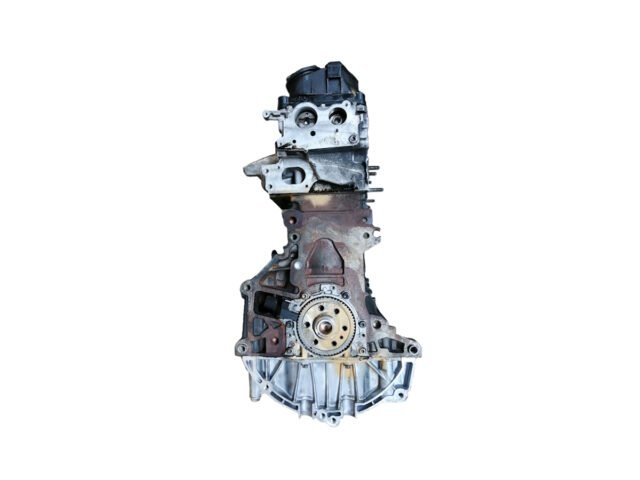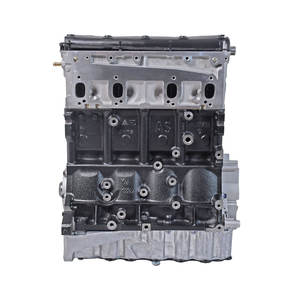Locate a Wide Choice of Amarok Engine for Sale-- Best Options for Your Automotive Demands
Locate a Wide Choice of Amarok Engine for Sale-- Best Options for Your Automotive Demands
Blog Article
Crucial Considerations and Tips for Picking the Right Engine for Your Requirements
Selecting the best engine is a complex choice that calls for cautious consideration of different aspects to ensure ideal performance for your certain demands. The complexities of engine choice extend past these fundamentals, motivating a closer evaluation of essential components that can eventually affect your contentment and success.
Determine Your Purpose
Establishing your purpose is a vital very first step in choosing the best engine for your demands. Comprehending the details application you have in mind will assist your decision-making procedure and guarantee that you pick an engine that aligns with your operational requirements. Whether you require an engine for a commercial lorry, industrial machinery, or a recreational task, each situation needs different performance features and capacities.
Take into consideration the environment in which the engine will certainly operate. Will it be subjected to hefty loads, severe temperatures, or extended usage? Assessing these variables will help you recognize the essential power output, gas performance, and sturdiness required to fulfill your goals.
Additionally, think of the lasting implications of your option. Budget restrictions, upkeep needs, and accessibility of parts are vital factors to consider that will certainly influence your general complete satisfaction and functional efficiency.
Ultimately, verbalizing your function will improve the option procedure and empower you to make a notified decision. By plainly defining your goals, you can review potential engines extra effectively and pick one that not only meets your existing needs yet likewise supports your future goals.
Evaluate Engine Requirements
As soon as you have clearly expressed your objective, the next step is to evaluate engine requirements. This procedure involves a thorough examination of different technical details that can dramatically affect performance and suitability for your planned usage.
Begin by examining the engine's horsepower and torque ratings. Horsepower is vital for establishing the engine's capability to perform work, while torque is necessary for understanding exactly how well it can deal with hefty tons or velocity. In addition, take into consideration the engine variation, as it frequently associates with power result and performance.
Next, check out the engine typeâEUR" whether it is a fuel, diesel, or different gas engineâEUR" as each kind has distinctive features and applications. Take note of the engine's arrangement (e.g., inline, V-type), as this can influence size, weight, and total efficiency.
An additional crucial aspect is the engine's air conditioning system, which can influence reliability and upkeep needs. Last but not least, assess the maker's track record and warranty offerings, as these can offer insights right into lasting efficiency and support. Thoroughly examining these specifications will certainly aid ensure that you pick an engine that aligns with your details demands and functional goals.
Think About Gas Effectiveness
Fuel effectiveness is an essential variable to take into consideration when picking an engine, as it directly impacts functional prices and ecological sustainability. An engine's gas efficiency is typically measured in miles per gallon (MPG) for cars or in particular gas usage (SFC) for airplane and marine engines. Greater gas effectiveness not just decreases the amount of gas eaten but likewise decreases greenhouse gas emissions, making it a responsible selection for eco-conscious customers.
When reviewing engine options, it is necessary to analyze the driving conditions and planned usage. Engines optimized for freeway driving may exhibit far better fuel efficiency contrasted to those made for stop-and-go website traffic. In addition, consider the engine's technology, such as turbocharging or hybrid systems, which can considerably improve gas performance.

Assess Maintenance Requirements

Begin by evaluating the maker's recommended maintenance periods and procedures. Some engines may require more frequent oil modifications, filter replacements, or specialized servicing, which can influence your functional downtime. Additionally, consider the accessibility of parts and the simplicity of getting them. Engines with extensive popularity generally have lion's shares schedule, reducing lead times during repair services.
Another vital element is the technical knowledge needed for maintenance. Some engines may require customized training for Find Out More specialists, which might restrict your choices for company. Examine whether the engine's design permits for very easy access to parts commonly requiring maintenance, as this can significantly impact labor prices.
Budget Plan Your Financial Investment
Comprehending maintenance needs is simply one facet of picking the right engine; economic factors to consider play an equally essential duty (amarok engine for sale). Establishing a clear spending plan is essential, as it affects not just the initial acquisition rate however additionally lasting operational expenses
When budgeting, consider both the continuous expenses and ahead of time expenses such as gas performance, maintenance, and potential fixings. A seemingly inexpensive engine may sustain higher costs in time because of poor fuel economic situation or regular upkeep needs. In addition, assess the schedule and expense of spare parts, as well as the warranties provided by manufacturers, which can give economic defense versus unpredicted expenses.
It is additionally a good idea to consider possible financing alternatives or renting arrangements, which could alleviate immediate financial burdens. Stabilize your need for innovative functions with your budget plan restrictions, making certain that you purchase an engine that meets your efficiency needs without compromising economic stability.
Inevitably, a well-rounded budget plan will equip you to make informed choices, aligning your engine selection with both your operational needs and monetary abilities, causing an extra lasting financial investment in the long run.

Final Thought
In final thought, choosing the suitable engine requires a complete understanding of certain requirements and applications. Careful examination of engine specifications, gas performance, and maintenance requirements is vital for notified decision-making. In addition, establishing an extensive spending plan makes certain that both first and recurring expenses are convenient. By sticking to these considerations, companies and individuals can make a sustainable investment that lines up with their operational objectives and efficiency assumptions, inevitably improving total effectiveness and efficiency.
Fuel efficiency is an important factor to think about when selecting an engine, as it straight influences operational costs and ecological sustainability. An engine's gas effectiveness is usually measured in miles per gallon (MPG) for lorries or in particular fuel intake (SFC) for airplane and aquatic engines. Diesel engines normally give better gas efficiency than gas engines. Ultimately, choosing an engine with a strong emphasis on gas effectiveness can lead to considerable lasting cost savings and contribute positively to environmental initiatives. Careful evaluation news of engine requirements, gas effectiveness, and upkeep demands is vital for notified decision-making.
Report this page